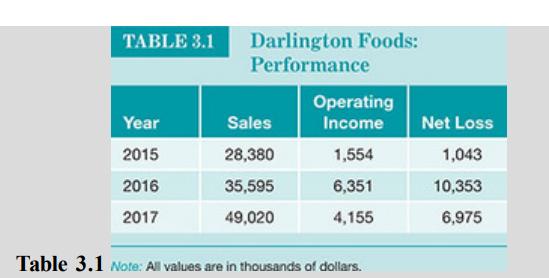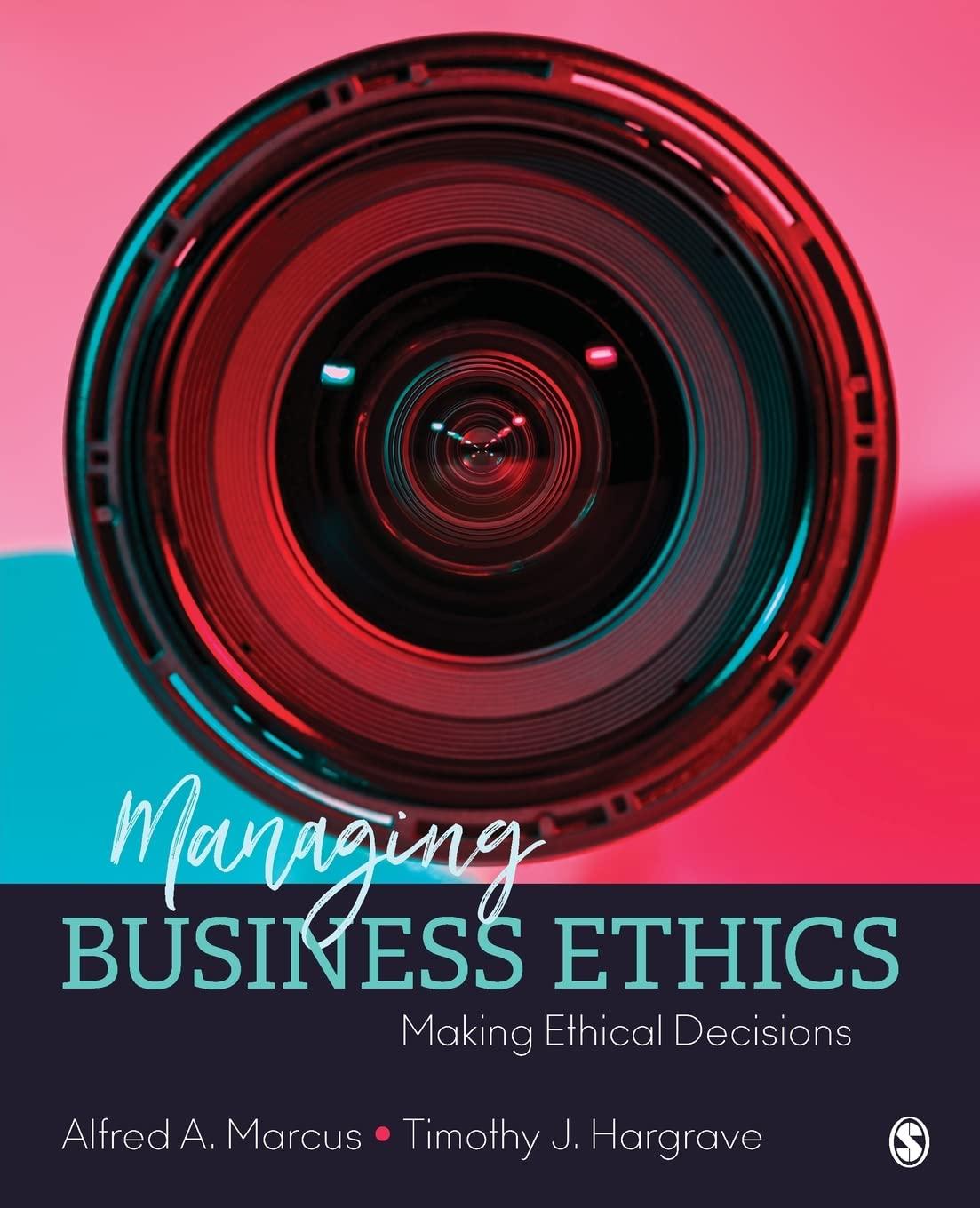Darlington Foods is an integrated wholesaler and retailer of high-quality food products. It provides gourmet foods to
Question:
Darlington Foods is an integrated wholesaler and retailer of high-quality food products. It provides gourmet foods to supermarket chains and specialty stores in the United States and Europe under the well-known brand names of “Fuller Flavor,” “Good-For-You,” and “Healthy Delite.” Partly through acquisition, its sales have more than doubled in the past 10 years, but profits have been disappointing. The founder of the company and the former CFO (chief financial officer) were forced to resign because of the company’s poor performance (Table 3.1).

The top management team now consists of company president and CEO Robert Dennis, 49, an engineering graduate with a PhD in educational administration from the University of Kansas; executive vice president Carl Martin, 47, who attended the University of Utah and worked for the Albertson and Super Value grocery chains; retail sales vice president Kevin J. O’Brien, 31, a graduate of the Harvard Business School; and CFO Benson Siegel, 59, a certified public accountant from the University of California, Berkeley, who used to run his own business. As the operations and marketing director of the firm, you are the newest member of the executive team. You have an MBA from the University of Minnesota Carlson School and formerly worked for the Target Company.
Before the monthly executive team meeting, O’Brien has proposed to send five senior employees to a conference on “Transforming the Soul of Business: Profit, Competition, and Conscience on the New Frontier,” which would be held in Hilton Head Island, South Carolina, next winter. This proposal is part of O’Brien’s ongoing effort to make the company more socially responsible. O’Brien feels deeply that the key to restoring Darlington’s profitability is to align it with upscale consumers that appreciate a socially conscious profile. He is fond of saying, “This company should be governed by a conscience. It should not be a slave to short-term profits.” The total cost of sending the five employees to Hilton Head will be more than $30,000.
Benson Siegel, whose office is right next door to yours, has been looking over the conference brochure. On the title page, it advertises “Innovative Techniques for Making a Profit While Making a Difference” and “How to Make Your Business a Positive Agent for Social Change.” The mission of the conference sponsor, the National Institute for a New Corporate Vision, is “to foster an evolution that encourages balance: a thriving corporate life, self-fulfillment, and meaningful personal relationships.” Many other companies that sell socially conscious goods and services will be at the conference. It promises sessions that address topics such as extraordinary customer service, incentives that appeal to employees’ hearts, worker empowerment, caring for the plight of the global poor, fostering creativity through empathy, employee belonging and wellbeing, collaborative communication, engaging the human spirit in the workforce through love, and giving back to the community.
Siegel tells you that he does not know what to think. A liberal Democrat, a successful entrepreneur, and philanthropist, he also was known as a hard-driving executive when he owned his own business. He feels that people should keep their priorities straight: “When in the office, use your head—leave your heart at home.” He tells you that this always has been his motto and communicates that to you in no uncertain terms. From his perspective, these ideas of O’Brien are a “no-go.” They are “dead on arrival.” But Siegel is unsure how other members of the executive team stand. He tells you that O’Brien is a “flake.” What he is trying is inconsistent with the shareholder interests Siegel must protect. He comments that O’Brien is “too dogmatic, fixed in his ways bright, but arrogant and self-righteous,” qualities he detests. A “fanatic”—“no telling how far he might go,” Siegel proclaims. You are not quite certain where your allegiances lie, for while you like Siegel, you have been charmed as well by O’Brien, who has been very supportive of your work.
Siegel reads an article about how several socially conscious businesses have not lived up to their ideals. They deserted their vaunted pay scales in which top management could not earn much more than wage earners. They took their factories from inner-city locations and shipped jobs to low-wage countries. They sullied the environment and had quality control problems, which led to the selling of contaminated products. At the same time, they proclaimed that they were a force of good, working for the future of the planet, and committed to an enlightened capitalism in order to improve society. Outraged by the hypocrisy of these firms, Siegel sends the article to the top management team at Darlington.
Meanwhile, O’Brien invites a guest to your executive committee meeting, Laura Scher, a former classmate of his, a person he believes “represents the best of the new capitalism.” Scher graduated near the top of her MBA class but did not choose the path to easy and quick riches. She refused a lucrative Wall Street offer and created her own company, Working Assets Funding Service, the purpose of which is “to do well by doing good.” The company offers a donation linked credit card and charity- connected long-distance phone service that allows people to donate to causes. Inc. magazine named the company one of the 500 fastest-growing privately held companies in the United States. O’Brien tells you that the “soul” of your company is at stake.
The ongoing conflict between Siegel and O’Brien makes you very nervous. Their emotions are running way too high. Is there some way to intervene? You are afraid your company is going to collapse because of the conflict between two people you essentially like and respect. You vaguely recall an ethical framework you learned to use in a class at the Carlson School. It was called “Weighing the Reasons,” or something like that. Would now be the time to invoke it, but how and to what end?
Step by Step Answer:

Managing Business Ethics Making Ethical Decisions
ISBN: 9781506388595
1st Edition
Authors: Alfred A. Marcus, Timothy J. Hargrave





